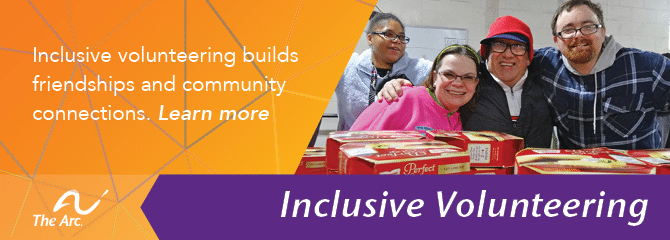First observed in 1986, Martin Luther King Jr. Day, honors the birthday of the most iconic civil rights leader of our time. In 1994, the holiday also became a national day of service or as the Corporation for National and Community Service (CNCS) puts it: “A day on, not a day off.” CNCS says its “MLK Day of Service is intended to empower individuals, strengthen communities, bridge barriers, create solutions to social problems, and move us closer to Dr. King’s vision of a “Beloved Community.”
This year’s MLK Day, on Jan. 21, saw thousands of Americans taking part in volunteer projects of all kinds. But until recently, people with disabilities were viewed as the recipients of other people’s volunteer efforts, not as volunteers in their own rights.
Obstacles facing people with disabilities who want to volunteer include misconceptions about their abilities and about the costs associated with making volunteer sites or activities accessible. Individuals with disabilities may also contend with lack of access to reliable transportation and fears that they may lose their disability benefits if they perform volunteer work. All of these assumptions — most of which are inaccurate — are unfortunate, because prospective volunteers, as well as organizations that need volunteers, can all benefit from inclusive volunteer programs.
The benefits of volunteer work for people with disabilities include: increased self-esteem; increased awareness about the abilities of people with physical and/or intellectual challenges; opportunities for learning valuable work readiness; socialization opportunities; and a feeling of belonging to their communities. For organizations, inclusive volunteer programs provide free labor that helps to further their missions.
Yet, the landscape for inclusive volunteer organizations is improving. Nowadays organizations like CNCS are recognizing the value of volunteers with disabilities. For the third year in a row, CNCS has awarded grants to The ARC and five other organizations that serve people with disabilities “to plan and execute volunteer programs that will unite Americans in service.”
According to the ARC’s website, “In the first year of funding, chapters of The ARC recruited 705 volunteers who contributed over 5,700 hours of service and fed 10,230 people in need.” ARC volunteers have served their communities in a variety of ways including “serving meals at soup kitchens; preparing and delivering meals to seniors; stocking food pantries; beautifying community spaces; spending time with people who are isolated; and helping care for pets and other animals.”
Interested in getting started with volunteer work? The ARC provides comprehensive information for prospective volunteers and the organizations they wish to serve on its website. Visit them today: https://www.thearc.org/


